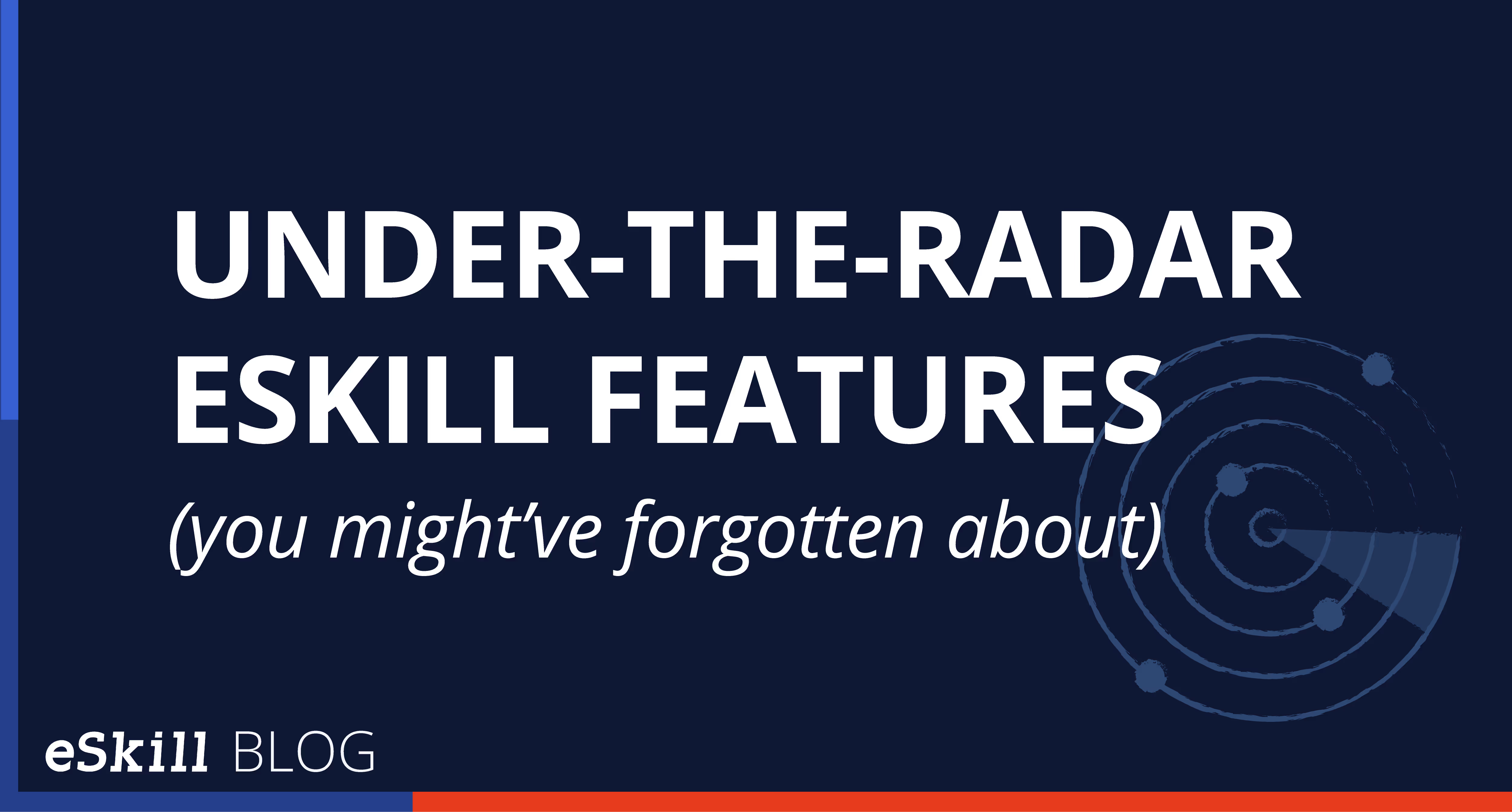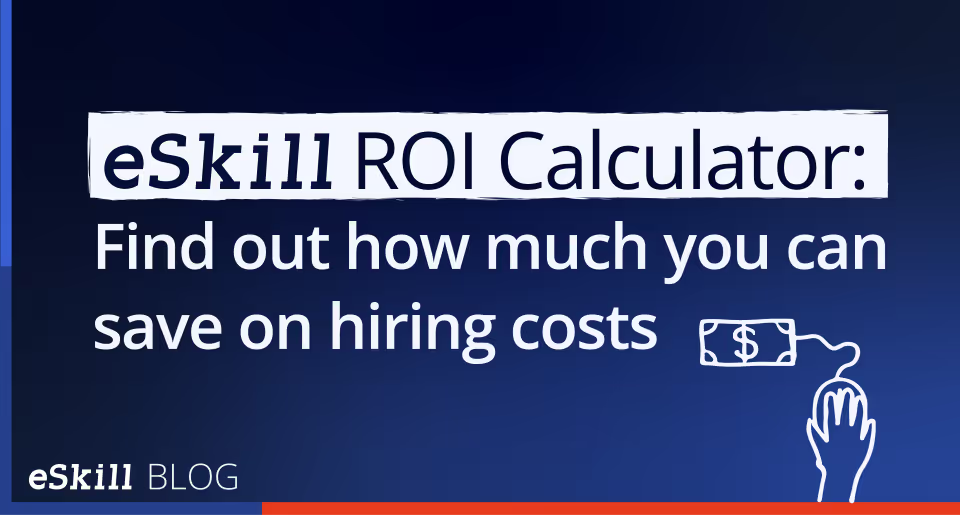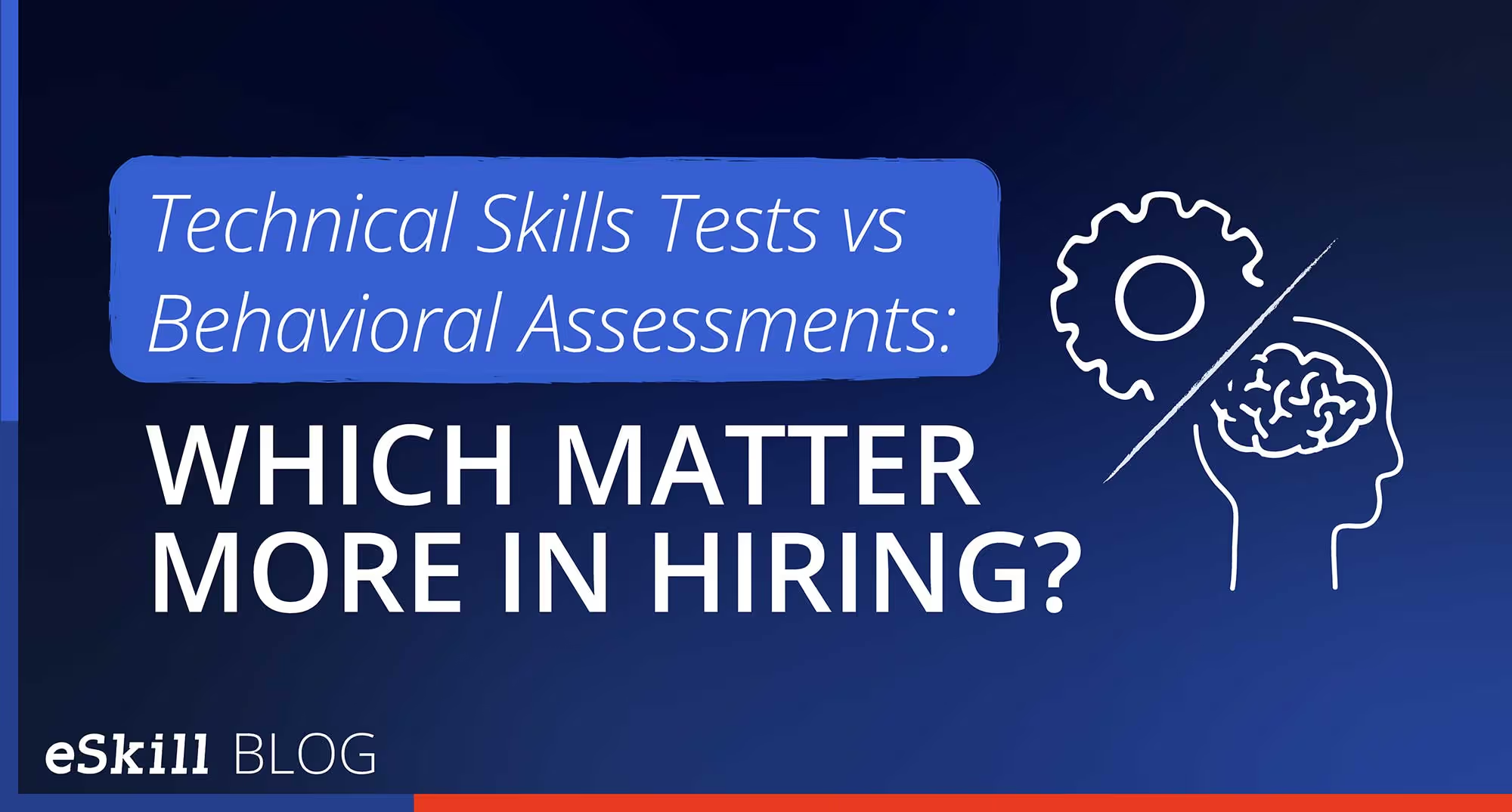As an HR professional, you strive to recruit “perfect” candidates for all your open roles. However, I’m sure you’ll agree that this is easier said than done-especially in recent years.
You are having difficulty finding qualified candidates because there is a shortage of applicants with the skills you need. If you have upgraded technology or implemented digital transformation solutions, you now require different skills.
Many applicants’ skills have not kept up with technology, and the result is a big skills gap. According to a Korn Ferry report, we have a global talent shortage of more than 85 million people, which is about the population of Germany. The problem has become so acute that 71% of CEOs say a skills shortage is their biggest business challenge. So, if you feel recruiting is like searching for a needle in a haystack, you are not alone.
Some organizations think working with talent assessment companies is the answer. More have implemented a selective hiring assessment solution like the industry-leading eSkill Talent Assessment PlatformTM to make it easier to recruit top candidates.
What Are Four Types of Tests Employers Can Utilize?
If a business is new to skills assessments, managers often ask us, “What is a Basic Skills Assessment Test?” We tell them organizations use skills assessment tests to evaluate job applicants and current employees to see if they can do a job and to determine if they are a good fit for their company culture. The types of skills tests you need depend on the type of position you need to fill and the required abilities and aptitudes.
The four assessments you will most likely use are skills tests, cognitive tests, simulations, and behavioral assessments.
Skills tests help you and your team confirm that an employee can do a job. For example, if you need a data entry operator with advanced MS Excel® abilities, asking applicants to answer questions that pertain to advanced Excel features will show you whether they understand the functions and know how to use them.
Cognitive tests assess candidates’ ability to think, reason, solve problems, and learn new material. They are essential when filling positions where employees must think on their feet and consider multiple factors to make important decisions. If you are hiring someone who will work in a dynamic, unpredictable environment such as an emergency room or be required to constantly absorb new information and learn new techniques, such as a cyber security manager, you need to use cognitive tests to evaluate applicants’ abilities.
Simulations mimic realistic job situations candidates will likely encounter on the job. This means they are one of your best indicators in determining which applicants are best qualified. For example, if you need a customer service representative who has excellent computer skills and basic math skills and is good at multitasking, then your assessment could include a multitasking simulation and questions where applicants complete job-related computer tasks and solve common math problems.
Behavioral assessments help you evaluate a candidate’s personality and behavioral traits to decide whether they will be successful in the job and assimilate into your corporate culture. They are not designed to be diagnostic. They simply show you whether a potential new hire will likely thrive in your organization.
What Are the Benefits of Pre-Hiring Assessments?
You gain a competitive advantage when you use pre-hiring assessments, which can lead to improved productivity and higher profits. These are ten benefits of using selective hiring assessments.
- Instantly Screen Applicants: You may receive hundreds of responses for a single job posting. Pre-hiring assessments allow you to quickly identify top candidates and weed out the unqualified ones.
- Decrease Time-to-Hire: Your hiring teams can zero in and focus on top candidates instead of wasting hours reviewing resumes from unqualified applicants.
- Minimize Hiring Mistakes: Hiring mistakes are expensive and counterproductive and can negatively affect team morale. A bad hire can also cost your company hundreds of thousands of dollars due to recruiting expenses, staff disruption, lost productivity, and loss of customer goodwill.
- Tailor-Made Pre-Hiring Assessment Solutions: Leading assessment solutions include a library of validated assessments that you can use as-is or modify by adding and deleting questions to fit your company’s unique needs.
- Real-life Performance Insights: Go beyond assessments with simulated experiences where you’ll see whether a candidate can apply knowledge on-the-job.
- Validate Verbal Communication and Foreign Language Skills: Some traits simply can’t be conveyed through written tests. Video response questions give you an idea of a candidate’s verbal communication and foreign language skills, as well as adding dimension insight into their personality.
- Minimize Unconscious Bias: Hiring teams make decisions based on applicants’ proven abilities instead of relying on gut feel.
- Dedicated Support: Leading pre-hiring assessment solution providers like eSkill assign each client a dedicated assessment expert who can answer questions and help you and your team develop and implement hiring strategies.
How Employers Benefit from Using Pre-Hiring Assessments
If you think you can make good hiring decisions by reviewing resumes and scheduling interviews, guess again. A whopping 80% of applicants lie on their resumes. So, hiring a candidate with a perfect resume who sounded wonderful during interviews could be a big mistake. That is what happened in the following scenario.
Steve, the HR manager for a semiconductor fabrication facility, needed to fill a maintenance technician position. He posted the job, received resumes from many promising applicants, and selected a few to interview.
When he talked to the shortlisted candidates, Jared emerged as the top candidate. His resume included the right skills, and he had experience repairing and maintaining the types of machines the company used. When Steve asked Jared why he wanted to leave his current company, he said he was ready for new challenges and wanted more training and development opportunities.
Jared got rave reviews when he interviewed with John, the hiring manager, and prospective team members. His references from former managers and colleagues were also excellent. Steve and John were convinced Jared was the perfect candidate and offered him the job. They could not have been more wrong.
It became obvious that Jared had lied about his skills and experience on his resume and during interviews. He knew very little about the company’s machinery and equipment and could not maintain it well or make repairs when necessary. This caused downtime on several production lines, which caused delays and missed deadlines, resulting in angry customers.
Steve and John had several meetings with Jared and sent him to workshops to help him improve his skills. Nothing worked, and the situation continued to get worse. Push finally came to shove when John received complaints from senior managers about Jared’s work. So, after a three-month probationary period, he had no choice but to terminate Jared.
If Steve and John had used pre-hiring assessments, they could have identified top candidates by reviewing test results instead of relying on possibly inaccurate information candidates provided on resumes and during interviews.
How to Optimize Pre-Hiring Assessment Results
You are probably wondering how pre-hiring assessments are used as a recruitment tool and how to get the best results. Different types of assessments are designed to provide different pieces of information. So, you should first decide what you want to evaluate. Then, you can choose the types of assessments that will provide the data you need. The following examples illustrate why this is important and how it can prevent costly hiring mistakes.
A mid-size commercial real estate company assessed applicants on many essential skills. However, they did not include simulation questions to ensure candidates really could do the job, and it came back to haunt them.
The company, which owned and managed a large portfolio of commercial properties in several Southwestern states, hired Laura as an administrative assistant to the president and CEO. She appeared to be the perfect candidate because her typing test results showed she was fast and accurate. She also has excellent phone and customer service skills and experience working with senior managers and executives.
The property managers at each location received reports each Friday that contained critical information they needed to map out their strategy for the following week. One of Laura’s jobs was to send the reports by overnight courier every Thursday.
Unfortunately, Laura lacked good organizational, time management, and multitasking skills. She missed the courier pickup deadline the first week, and the managers received the reports late. She sent the reports on time the following week, but not to the right addresses. On Friday morning, several property managers called the corporate office and said they had not received their reports, and others had received them for another property.
Ann, the office manager, had to stop working on an important project, call each property to find out which ones were missing reports or received the wrong ones, make new copies, and send them priority overnight for Saturday delivery.
Organizational, time management, and multi-tasking skills were essential for this job. The company could have avoided this problem if they had required candidates to complete simulation questions to demonstrate they had the right skills.
An applicant can have “all the right stuff” and still be a bad hire. A small software company learned that the hard way when they hired a candidate who had excellent technical skills and knowledge but was a bad fit for their company culture.
The company hired Leo as a lead software engineer to manage a team of four developers. The firm had a casual work environment where everyone, including the CEO and senior managers, wore jeans, t-shirts, and shorts. Everyone could work flexible hours as long as they attended required meetings, were in the office during core business hours, and met their deadlines.
Leo was extremely qualified, and Brian, the Vice President of Engineering, was sure he was the perfect hire. Unfortunately, he was not.
Leo had a very autocratic management style and demanded that his staff follow his orders without question. This clashed with the company’s laid-back culture, and after three months, Leo’s entire team walked into Brian’s office and threatened to quit.
The hiring team thought Leo was the perfect fit, but if he had completed a behavioral assessment, they would have seen that he was not a good fit for the job or the company culture.
Why Organizations Need the Best Hiring Assessment Tests
Companies in virtually every industry use selective hiring assessments to streamline hiring, decrease time-to-hire, and reduce turnover. These are some examples of clients from various industry sectors that have simplified recruiting by implementing eSkill.
- SolvOne, an environmental compliance company, requires new hires to complete training. Attrition was high because many candidates could not pass the course. It implemented pre-hiring assessments to improve the quality of hire and increased graduation rates by 26%.
- Encore Exchange, a medical billing service, began using pre-hiring assessments and decreased applicant screening time by 67% and time-to-hire by 33%. The company also improved the quality of recruiting organization-wide.
- TaskUs is a global provider of outsourced digital and customer services that help companies protect and grow their brands. Implementing selective hiring assessments helped the company improve the quality of hire and reduce turnover by 25%.
- Regency Recruitment and Resources Limited, an HR solutions provider, was using another pre-hiring assessment solution. When it switched to the eSkill Talent Assessment PlatformTM, it reduced recruiting costs by 50% while helping clients decrease time-to-hire.
- Charger Logistics, a commercial transportation company, reduced hiring costs by 30% and time-to-hire by 33% and increased employee retention to 95% when it began using customized pre-hiring assessments.
Getting Started with Online Assessment Tests for Jobs
When you use a selective hiring assessment solution like the eSkill Talent Assessment PlatformTM, you take the guesswork out of hiring and reduce recruiting costs and time-to-hire. Many eSkill clients have reduced hiring costs by 70% and decreased time-to-hire by 60%.
Are you ready to learn how using pre-hiring assessments can help you streamline hiring throughout your organization? Contact us to request a demo.
Talk to sales






